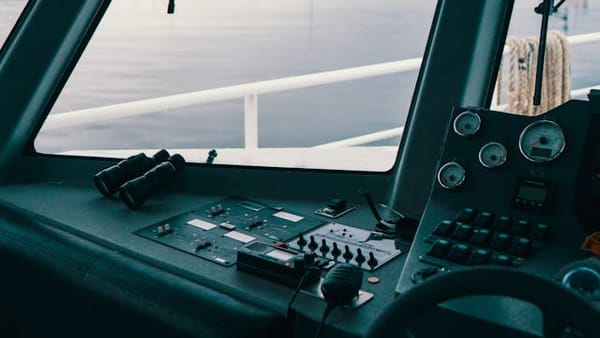Boating Safety: All About Marine Fire Extinguishers for Safety on the Water
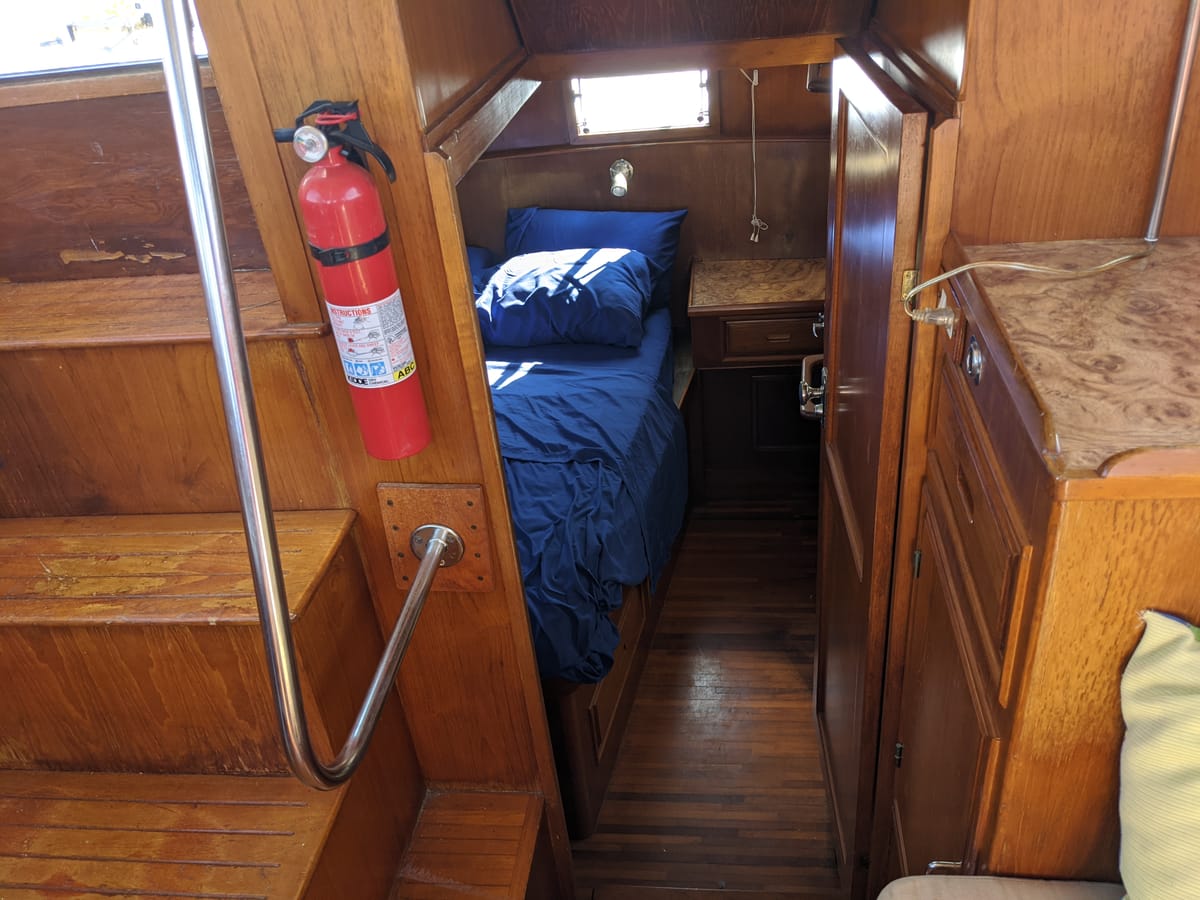
When you think about the open water, fire may not be the first hazard that comes to mind. However, fires on boats are a significant risk, often caused by fuel leaks, electrical malfunctions or galley mishaps. They can happen at home on a trailer, at a marina or at a private dock rental.
This makes marine fire extinguishers an essential part of boating safety equipment. Keep reading to explore the types of marine fire extinguishers, how to choose the right one for your boat and discover tips for maintaining them to ensure they’re ready when needed.
Types of Marine Fire Extinguishers
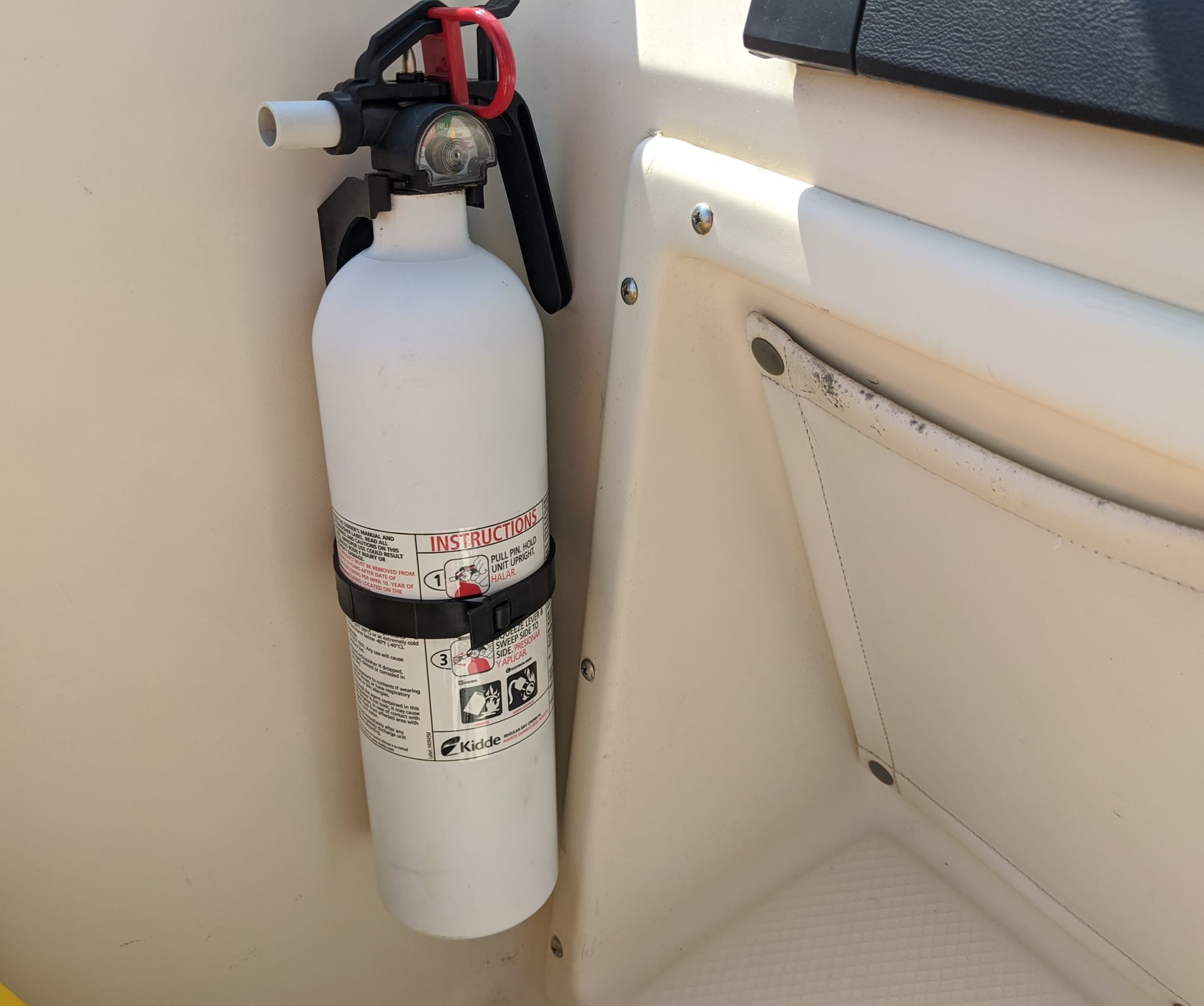
Marine fire extinguishers are classified based on the type of fires they’re designed to combat. Fires are divided into classes according to the materials involved.
- Class A: Fires involving ordinary combustible materials such as wood, paper or cloth
- Class B: Fires caused by flammable liquids, such as gasoline or oil, which are common in boat engines
- Class C: Fires involving electrical equipment and wiring
Most marine fires involve flammable liquids or electrical components, so extinguishers rated for Class B and C fires are particularly important for boaters. However, multi-purpose extinguishers that cover Class A, B and C fires are widely available and recommended for comprehensive coverage.
Common Extinguisher Types for Boats
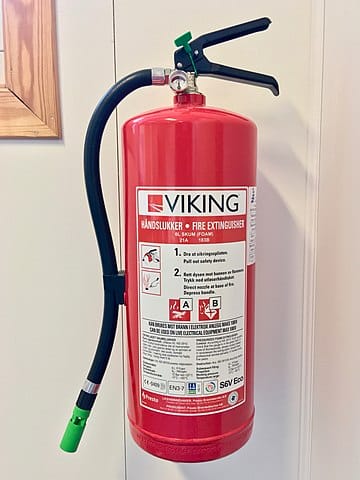
- Dry Chemical Extinguishers: These are the most common type and are effective against Class A, B and C fires. They use a fine powder to interrupt the chemical reactions causing the fire.
- CO2 (Carbon Dioxide) Extinguishers: Ideal for electrical fires (Class C) and flammable liquids (Class B), CO2 extinguishers work by displacing oxygen, which suffocates the fire without leaving a residue. This is especially useful in engine rooms.
- Foam Extinguishers: These are effective against Class A and B fires, particularly those involving flammable liquids. Foam extinguishers create a barrier between the fuel and oxygen, preventing re-ignition.
Selecting the Right Marine Fire Extinguisher
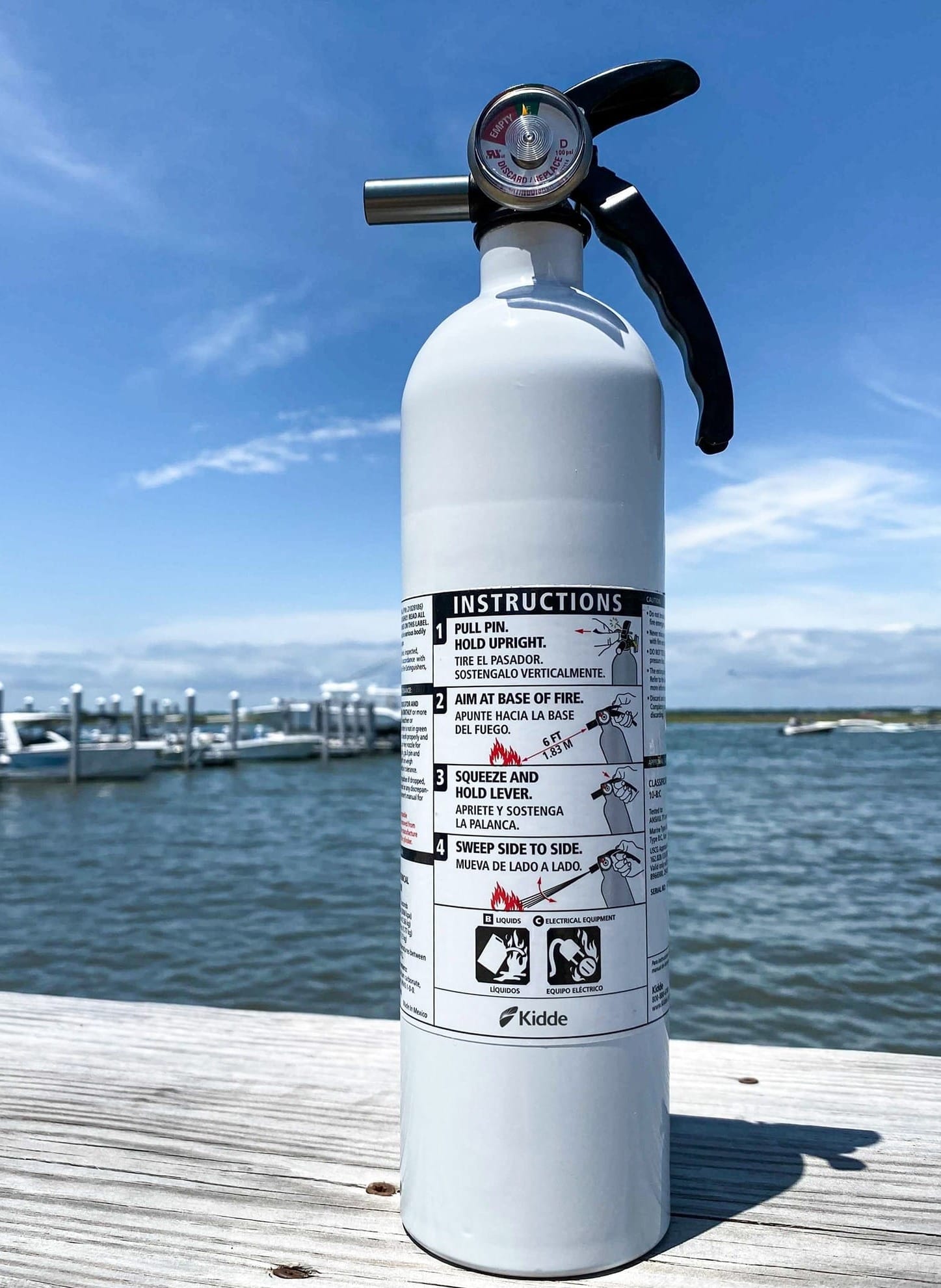
When choosing a fire extinguisher for your boat, several factors come into play.
- Size and Capacity: The size of your fire extinguisher should match the size of your boat. Boats under 26 feet long typically need at least one B-I fire extinguisher (a smaller size), while larger vessels may require multiple or larger extinguishers (such as B-II). The U.S. Coast Guard sets minimum requirements based on the length of the boat and whether it has permanent fuel tanks.
- Extinguisher Rating: Extinguishers are rated by the types of fires they are capable of putting out. Look for a marine-grade extinguisher with the appropriate ratings for Class B and C fires, as fuel and electrical systems are the primary sources of onboard fire hazards.
- Mounting and Accessibility: Fire extinguishers should be mounted in easy-to-reach locations. Consider areas near the galley, engine compartment, and helm. The faster you can access the extinguisher, the more likely you will put out a fire before it spreads to other parts of the boat, the dock, the marina, or another private boat lift rental.
Legal Requirements
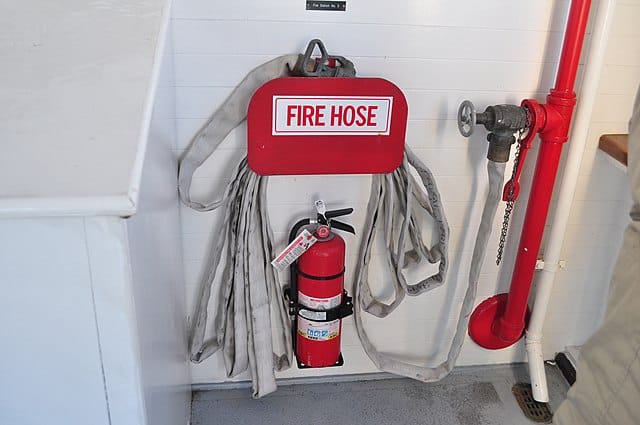
The U.S. Coast Guard (USCG) has specific requirements for fire extinguishers based on the size and type of boat.
- Boats under 26 feet - at least one B-I extinguisher is required
- Boats between 26 and 40 feet - need two B-I extinguishers or one B-II extinguisher
- Larger boats - may require additional extinguishers or built-in systems.
Extinguishers must be easily accessible whether you’re on the water, at a marina or docked at a private boat slip for rent. Their pressure gauges should be checked regularly to ensure they’re fully charged. The USCG mandates that extinguishers must be "approved" for marine use, which means they meet specific standards for corrosion resistance and other marine-related factors.
Maintenance and Inspection
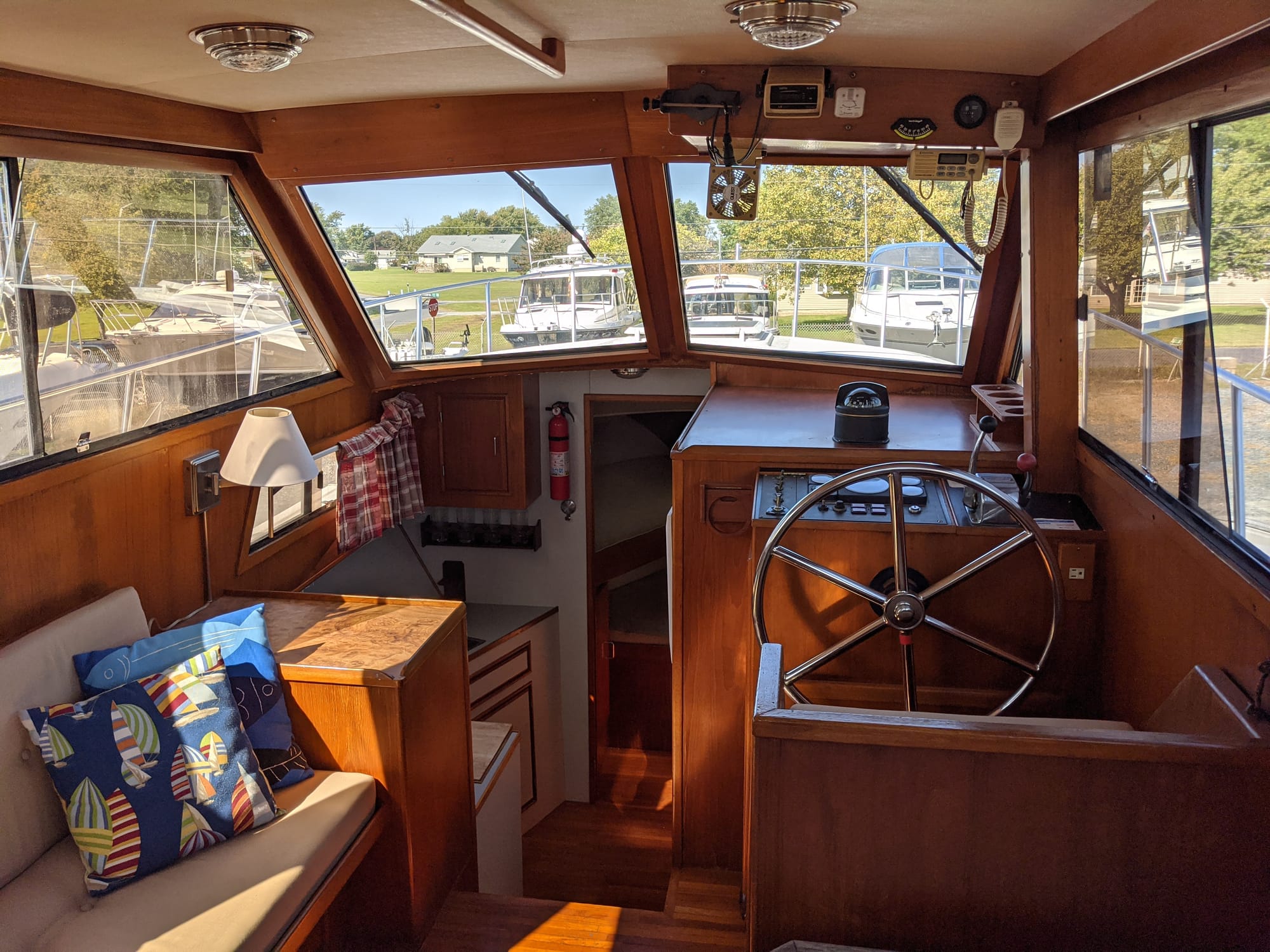
Fire extinguishers require regular maintenance to ensure they function properly. Some key points for maintaining marine fire extinguishers include:
- Regular Inspection: Check extinguishers monthly for pressure, visible damage or signs of corrosion. Ensure that the locking pin is intact and that the nozzle or body is free of rust.
- Pressure Gauge Check: Make sure the needle on the pressure gauge is in the green zone. An extinguisher in the red zone needs to be recharged or replaced.
- Cleaning: Wipe down the extinguisher to remove salt and moisture, which can cause corrosion over time.
- Servicing: Some extinguishers require professional servicing or hydrostatic testing every few years. Check the manufacturer's guidelines and your local regulations.
How to Use a Fire Extinguisher: The PASS Technique
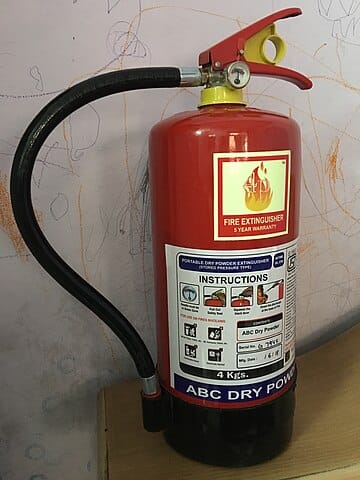
Knowing how to use a fire extinguisher is critical in an emergency. The PASS technique is a simple, four-step method to remember.
- P: Pull the pin.
- A: Aim the nozzle at the base of the fire.
- S: Squeeze the handle to release the extinguishing agent.
- S: Sweep from side to side to cover the entire area of the fire.
Fire Prevention Tips for Boaters
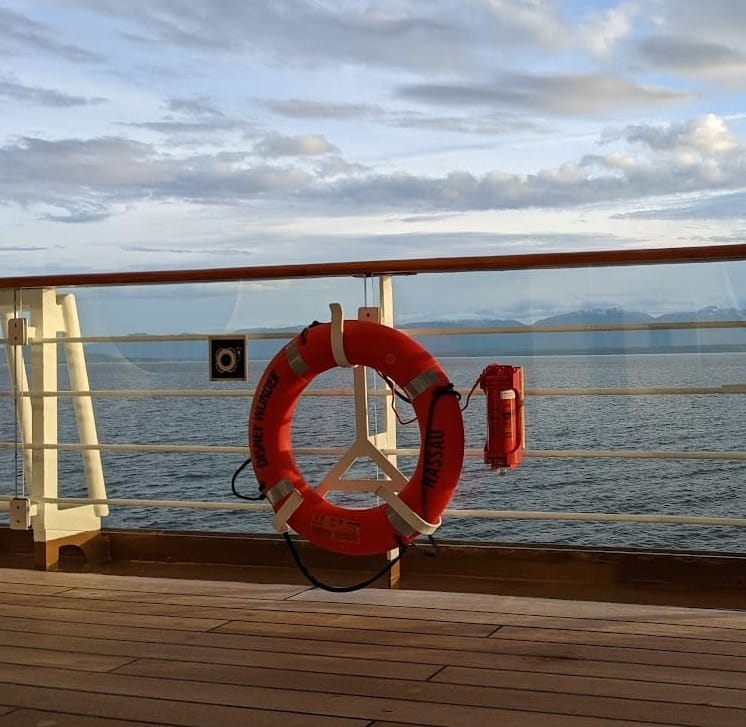
While having the right extinguishers onboard is essential, the best defense is preventing a fire from starting. Here are some tips to reduce the risk of fire on your boat.
- Regular Maintenance: Keep fuel lines, tanks and electrical wiring in good condition. Routine checks can catch small problems before they lead to bigger issues.
- Proper Fueling Procedures: Turn off the engine and any electrical devices before fueling. Use a blower to vent fuel vapors before starting the engine again.
- Safe Cooking Practices: If you have a galley, never leave the stove unattended while cooking and use proper ventilation when using the stove whether you’re on the water or docked at a boat slip rental.
- Battery Management: Avoid overloading circuits or using worn-out wiring. Disconnect batteries when not in use, and use marine-rated equipment.
Marine Fire Extinguisher Brands - Kidde
- Amerex
- First Alert



